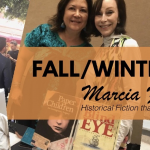How I Learned about the Holocaust
I grew up in a home with music, art and laughter. My parents were readers, creatives and intellectual bohemians who examined contemporary politics, banned novels and humor. The topic that was never mentioned was the Holocaust. I grew up happy, engaged and curious.
What was missing from our family discussions was the murder of six million Jews in Europe. My father served in the US Army during that time. My mother followed him when he was shipped around the States. I knew who the enemies and the allies were. I knew about aggressions from Germany and Japanese governments. I did not know there was a war against Jews, gypsies, homosexuals and anyone “different.”
Over the years I asked my grandmother where her family was. With a sad expression and a sigh, she would tell me they were all gone. In a child’s mind, that means they got old and died. In reality, almost 100 members of our immediate family were led to the gas chambers of Auschwitz located in Poland, their place of birth.
With little information on television and hushed conversations when I entered a room, I remained ignorant. My parents did not belong to a synagogue so I did not receive a religious education. I learned about the Holocaust when I was twelve. At the Coral Gables bus station one morning, clutching my 35-cent lunch money, I glanced at the paperback books. One title resonated with me: The Trial of Adolph Eichmann. On the cover, it said, “Six Million Jews Murdered.” I couldn’t understand it so I bought the book, slid it into my purse and went through my day nibbling from friend’ lunches.
After school, I buried my nose in my purchase. I realized it was the transcript of a trial. It wasn’t a novel but a true story. Eichmann’s words were chilling as he explained how he carried out his duties to destroy a people, a religion, a culture. I was horrified. Then I realized he was speaking of my great-grandparents, Miriam and Meyer, my mother’s grandparents, my beloved grandmother’s parents who all resided in a large apartment house at 21 Bielanska Street in Warsaw, all facts I learned later.
When I came out of my room after finishing the book, I was furious. I realized that I had been lied to through omission. Why wasn’t I told about this? Tell me the truth about our family! What happened to my great-grandparents, aunts, uncles, cousins, I demanded.
I was met with tears, hysteria, sobbing. I felt guilty for upsetting my mother and grandmother. Would they tell me the truth? Eventually, I had most of the story. I learned not to bring it up too often because it was painful to watch the re-living of a tragedy. Instead, I left it alone scouring encyclopedias where I viewed skeletal concentration camp internees for the first time. I couldn’t stop staring at them.
My realization that they were persecuted for being Jewish just like me was shocking. How could this happen? Why didn’t people stop it when their neighbors were disappearing? What happened to the people in the sepia photos my family kept in an album? What would I have done? Why were people like me persecuted when I could hardly explain my own Jewishness.
It took years for me to digest what happened, how a family was wiped out, what my place was in this tragedy.
It was difficult to sort it out, especially as life moved forward. For me, it was college, teaching, marriage, children and the stories I had teased out of my grandmother with cautious sensitivity.
When my grandmother shared letters from her family trapped in Warsaw, she said, “These are my Paper Children. They’re all I have left of my family.” It took me twenty years to have them translated from High German, Polish and Yiddish. I learned who they were, their feelings, dreams and the dilemma they faced to stay or leave. I read about what they were running out of, what happened to my great-uncle Carlo who escaped to Brussels, the anguish of being in an intolerable situation. I wrote a novel about it all, PAPER CHILDREN—An Immigrant’s Legacy. But for one decision, I would not be here. Nor would my children and their children. I am first generation Polish/American and I am grateful.
With the commonality of DNA, interest in genealogy and the burgeoning science of epigenetics, many of us are looking for the puzzle pieces that will explain our own identities—our predilections, fears, insights and more. I’ve had an interesting journey exploring mine.






While reading this story, I was transported back to that time, and felt the anxiety for hiding from the Nazis, and the fear of exposure! I only recently discovered that my maternal father’s father was Jewish, after a cousin did a genealogy search of our family. I have always wondered at my “fascination” with the Jewish people and their history. Growing up, I wondered why all the families I read of, with my grandfather’s last name, were Jewish except for ours. I was just told not to ask questions…that we “were Catholic”! Now I understand why! But I feel that 68 years old, I am now discovering part of my roots! Thank you, Marcia Fine, for a glimpse of my family’s past, though are part German, not Polish.
Dear Sue, Your story touched me because so many are learning of their personal history and some find out it’s a surprise!
All my novels are exactly about this! Besides my story Hidden Ones is about keeping religious secrets. Jews have 5000 years of
history and have been persecuted for most of them so you can understand the fear of exposure. I hope you explore and write it down!
Paper Children is about why I’m here. My grandmother made one decision that saved future generations. Everything in the book about my grandparents is true. I was compelled to tell the story. No camps. It’s what happened after the war in the US.
Thank you for writing. You encourage me.
Warmly, Marcia
Marcia
Your writing is so powerful and even though I never met you-it really touches me that you had to uncover this story of your family at such a tender age. Thank you for sharing I know you are not alone in this and hope that by sharing you have discovered more like you.
Check out @thebutterflyprojectnow
Love to stay connected
Dear Cheryl,
Thank you so much for your comment. Being Jewish is complicated for many. Since I didn’t have a religious background, I didn’t grasp the enormity of our history. I do now! I was able to express so much more in the novel.
Warmly,
Marcia